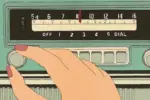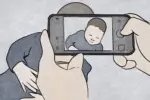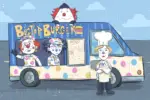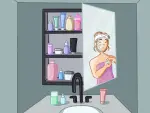Many people are aware of John Green, a man well-known for writing “The Fault in Our Stars,” but what might surprise people is the fact that this best-selling author dabbles in more than just the written word. Together, alongside his brother, Hank Green, the sibling duo hosts their Vlogbrothers YouTube channel. Among their many creations, one of the Green brothers’ lesser known works is the Crash Course YouTube channel.
So, what is Crash Course? It’s an educational YouTube channel that got its start through a history series, hosted by John Green, and a science series, hosted by Hank Green. The channel has since expanded to include more than two dozen courses, with each course showcasing a knowledgeable host aided by engaging animation. The courses can be enjoyed by anyone, but many of them are particularly helpful to college students. The topics range from astronomy to film studies to world history.
Whether students are struggling to wrap their minds around a certain concept in a class or they just want to learn more about their favorite subject, this channel is a great avenue for students to learn more about the topics they’re studying in school. The courses are designed so that students can watch a single video on the subject they’re struggling with, or they can watch the whole course to better understand the subject as a whole.
Here are six of the most helpful courses for college students.
1. Biology
As a general-education requirement, all students have to take at least one science class at some point during their college career, even students whose majors aren’t related to the sciences. One such commonly chosen science elective is biology.
Hosted by Hank Green, Crash Course Biology is a series for students who struggle to understand photosynthesis, heredity, mitosis, meiosis or natural selection. In the course, Green covers everything concerning biology, discussing individual topics in each video. He explains covalent, ionic and hydrogen bonds. He describes why water is one of life’s most important substances, and goes into detail about the different organ systems of the body, such as the immune system, the endocrine system and the reproductive system.
For students who need help in scientific subjects other than biology, there are more courses available: Crash Course Anatomy, Crash Course Astronomy, Crash Course Chemistry, Crash Course Ecology and Crash Course Physics.
2. Sociology
In their path to higher education, students must take some form of social sciences class while they are pursuing their degree. Sociology is the typical choice for many, mainly because it doesn’t have the scientific requirements that psychology has. However, trying to remember who came up with what theory and what it means for society can be hard.
Crash Course Sociology, hosted by Nicole Sweeney, is a great resource for those needing an extra helping hand in their sociology classes. In this course, Sweeney begins by explaining what sociology is; she then spends time on specific topics, like how sociologists use the scientific method. She looks at conflict theories, beginning with Karl Marx, and she defines what culture is. Sweeney also touches upon the matter of social stratification, gender stratification and global stratification.
This course touches on all of the major notions of sociology and will help any students struggling to keep up in their sociology classes.
For those who chose to take a psychology course,Crash Course Psychology is available to help clear up any confusion or if someone simply wants to expand their knowledge base.
3. U.S. Government and Politics
Another common class requirement for U.S. college students is political science. Unfortunately, it can be a confusing task trying to learn about the history of the U.S. government and the intricacies of the government branches.
Craig Benzine explains everything there is to know about the U.S. government in Crash Course U.S. Government and Politics. He covers a different topic in each video, exploring Congress, its history, how its members are elected and its power.
Similarly, he looks at the power U.S. presidents have and how they govern. In the video, he explains the powers of the judicial system and the factors that influence the courts’ decisions. Benzine examines the history and importance of certain amendments, such as freedom of religion, freedom of speech, freedom of the press, due process of law and equal protection. He describes social and foreign policy, and he talks about important matters such as gerrymandering, affirmative action and government regulation.
This course is catered to students who are feeling overwhelmed trying to remember what bicameral means or what each amendment does. For students who need further help in the social sciences, there is also a Crash Course Economics series.
4. Literature
No matter their degree, every college student has to take a few English classes. In these classes, students might have to learn what iambic pentameter is. They might come across some of Shakespeare’s works, or they might have to read and analyze “The Yellow Wallpaper” or write about Emily Dickinson’s or Sylvia Plath’s poetry. For someone who isn’t an English major or otherwise inclined to the literary arts, analyzing any of these works might prove to be a bit difficult.
In Crash Course Literature, John Green spends time analyzing and explaining all of this and much more, including “Romeo and Juliet,” “Oedipus Rex,” “Lord of the Flies” and George Orwell’s “1984.” Crash Course Literature is a fantastic study tool for students struggling in their English classes.
There are also other courses available for students who need help in their other humanities classes, including Crash Course Mythology and Crash Course Philosophy.
5. World History
History classes are something every college student is familiar with, but it can be hard to keep every important person, war, country and civilization straight. Crash Course World History is a fun way to study history, while making it easy to remember the material.
John Green talks about multiple historical topics in this course, starting with the dawn of civilization and ending with today’s global economy. In between, he devotes whole videos to specific subjects, such as the beginnings of major religions and the histories of ancient civilizations, including the Indus Valley civilization, ancient Egypt, China and Rome. Green explains what the Crusades were and what the Mongols did, and he talks in depth about important individuals, revolutions and wars. These videos connect to one another chronologically, but they can be viewed individually based on the topic that needs to be studied.
For students who need help in other historical subjects beyond world history, there are many other historical courses available: Crash Course Big History, Crash Course European History, Crash Course History of Science, Crash Course U.S. History and Crash Course World History 2.
6. Study Skills
It isn’t uncommon for many students to excel intellectually, but struggle in other areas, such as time management or even note-taking. Thankfully, this informative channel also offers guidance to students on how they can improve their study skills.
In Crash Course Study Skills, Thomas Frank goes over multiple study tips students can implement. His videos focus on how to take notes, giving strategies for reading assignments and offering tips on how to study for exams. Frank gives advice to students on how to plan and organize their time, how to avoid procrastination and shares his ideas for tips to avoid test anxiety. He even talks about where to begin when writing a research paper.
Students hoping to become more organized or that want a few study tips, look no further, this is the video to watch.
While the courses are not listed above, there are several other videos in the series that college students might find helpful. Here is a quick list for those searching for an additional educational boost: Crash Course Business – Soft Skills, Crash Course Computer Science, Crash Course Engineering, Crash Course Film History, Crash Course Games, Crash Course Intellectual Property, Crash Course Media Literacy and Crash Course Statistics.
















